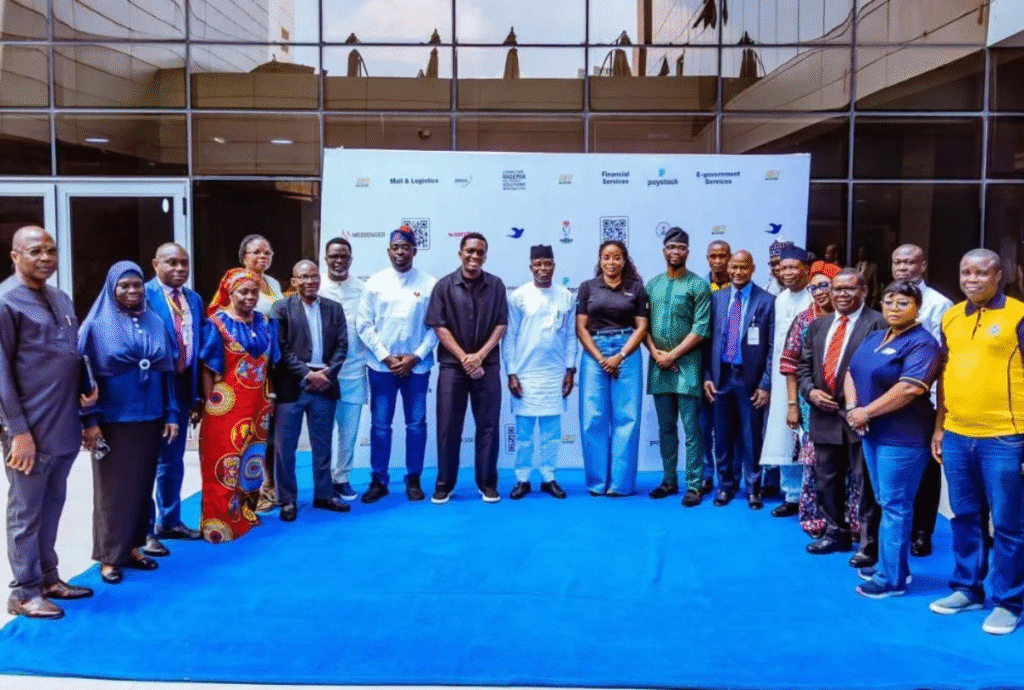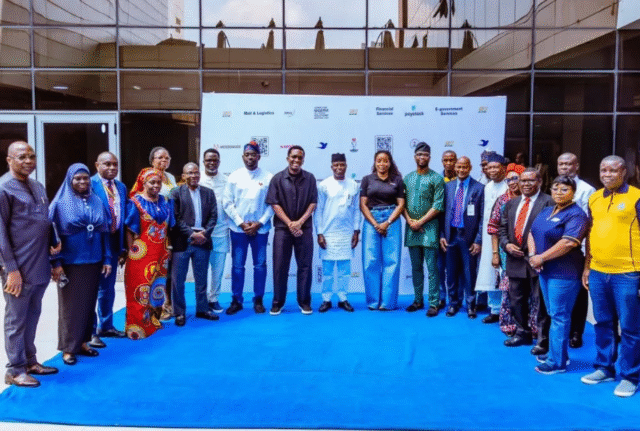In a significant stride for Nigeria’s logistics and fintech sectors, the Nigerian Postal Service (NIPOST) has officially launched a new automated payment system in collaboration with Paystack, signalling the country’s commitment to modernising its postal infrastructure and payment processes. The initiative is envisioned to streamline how customs duties and parcel payments are handled, offering customers a more transparent, efficient, and tech-enabled experience.
Launched on 31 October 2025, the system stands as a milestone in NIPOST’s digital transformation journey—one that seeks to put the agency on par with international best practices in mail, logistics and e-commerce facilitation.
Table of Contents

How the System Works and What It Means for Users
With this upgrade, customers receiving inbound postal items will now receive real-time notifications once customs duties are assessed. The platform delivers secure payment links via email or SMS—through Paystack’s payment infrastructure—allowing users to settle payments online seamlessly.
Moreover, for situations where reassessment is needed, the system also enables users to request reassessments digitally at the click of a button. This replaces previous manual interventions and lengthy processes, marking a major convenience boost.
In parallel, NIPOST has entered into partnerships with logistics providers such as SendBox and Messenger.ng to bolster last-mile delivery and parcel tracking capabilities—ensuring that the payment system is backed by end-to-end logistics enhancements.
For ordinary Nigerians—whether individuals awaiting a parcel from abroad, small business owners importing goods, or e-commerce merchants—this development promises fewer delays, clearer status updates and reduced friction at the customs and postal interface.
Strategic Significance & Broader Implications
The NIPOST-Paystack collaboration is more than a systems upgrade: it represents a model of public-private partnership and reflects the government’s broader agenda of digital inclusion, trade facilitation and financial system evolution. At the launch, senior officials from the Ministry of Communications, Innovation and Digital Economy underscored that this initiative aligns with the Renewed Hope Agenda, aiming to strengthen e-commerce infrastructure and boost Nigeria’s competitiveness in the global digital economy.
From an institutional viewpoint, NIPOST’s Postmaster General and CEO, Tola Odeyemi, described the move as a “new chapter in NIPOST’s transformation story,” emphasising the agency’s dedication to innovation, efficiency and trust.
For the fintech industry, the partnership signals growing maturity in Nigeria’s digital payment ecosystem. By embedding Paystack’s technology within a national logistics service, the initiative expands the frontier of fintech use cases beyond retail and banking into postal and customs operations—a promising signal for further integrations.
It also holds significance for small-business importers and cross-border e-commerce participants. By reducing friction in customs clearance and postal payment, the system can potentially shrink bottlenecks, reduce time-to-delivery, and enhance the overall customer experience—factors that contribute to more competitive small-business operations and increased consumer trust.

What to Watch & What Comes Next
While the launch is timely and forward-looking, its true impact will depend on execution and user adoption. Below are some key factors to observe:
1. User experience and uptake. Customers will judge the new system based on how reliably the notification and payment process works, how few hitches there are with reassessments, and how seamless the integration is with tracking and delivery logistics. Any glitches could undermine trust.
2. Scope of coverage. Will the automated payment system be rolled out nationwide, including remote and underserved regions? Ensuring equitable access will be crucial for true digital inclusion.
3. Integration with logistics. While NIPOST has partnered with SendBox and Messenger.ng for last-mile delivery and tracking, the real world challenge lies in synchronising all system components—payment, notification, customs assessment, tracking and delivery. Any breakdown in this chain could weaken the end-to-end value proposition.
4. Data security and digital literacy. As payment links via SMS or email become the norm, the system must be resilient to cyber-fraud and phishing. Users—especially those less digitally familiar—will need clear guidance to navigate the new processes safely.
5. Ongoing public-private collaboration. The success of this initiative may prompt similar digitisation efforts across other government services. Monitoring how the collaboration evolves, how costs are managed, and how outcomes are measured will be important.
From my vantage point, for Nigeria to fully benefit, this project must be accompanied by user education campaigns, customer support readiness, and monitoring mechanisms to gather feedback and continuously improve. The promise is strong—but as with all digital transformations, real value emerges only when adoption is high and friction is low.

Conclusion
Nigeria’s postal service has taken a bold step into the digital era. The launch of the automated payment system by NIPOST in partnership with Paystack marks a pivot towards more efficient, transparent and customer-friendly postal operations. For everyday Nigerians, this holds real potential—faster service, clearer status updates, and more seamless payments. For businesses and policymakers, it offers a blueprint of how logistics, payments and customs can converge digitally. The success will now hinge on execution, uptake and continuous improvement—and I’ll be watching closely.
Join Our Social Media Channels:
WhatsApp: NaijaEyes
Facebook: NaijaEyes
Twitter: NaijaEyes
Instagram: NaijaEyes
TikTok: NaijaEyes





